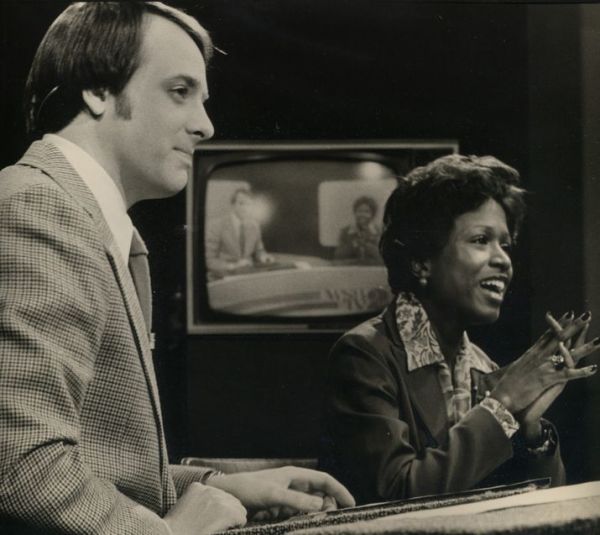By Amir Vera, AABJ
Until late 2018, there hasn’t been an organized record of the first black journalists in Atlanta.
There was no record of the challenges they faced unless it was by word of mouth.
The Atlanta Association of Black Journalists changed all that. In the span of two years, a lot of volunteer hours and countless interviews, members of AABJ organized all of that history to create a film dedicated to these stories.
A new documentary from the Atlanta Association of Black Journalists chronicles that effort and the trailblazing men and women who became Atlanta’s first broadcast journalists.
“Black & Reporting: The Struggle Behind the Lens” is a firsthand account that charts the paths of 10 Atlanta broadcast pioneers. Among other notable milestones, the documentary unveils the fight with the Federal Communication Commission (FCC) to force local TV and radio stations to hire more black talent on-air and behind-the-scenes.
At a screening earlier this year, eight of the 10 pioneers talked about the current state of journalism, it’s future and tips for young journalists.
“It took AABJ to tell the stories of the first black journalists,” said Collie Burnett, a former reporter at WSB Radio and one of the panelists, adding that major and local networks are just covering rappers, athletes and business leaders.
“Only when you control the means of distribution do have the capacity to tell the stories that need to be told and make a difference.”
Lorenzo “Lo” Jelks, the first black reporter in Atlanta, came to WSB in the late 1960s. He said he enjoyed the documentary screening and couldn’t wait to see the finished product. He also said he hopes viewers really understand not only the experiences of the trailblazers, but also “the pride associated with African Americans in the media.”
Jocelyn Dorsey, another trailblazer and former anchor/reporter at WSB-TV, spoke to that pride saying her fellow reporters helped her learn about the city. She even described some of the other trailblazers as brothers and sisters.
“There was a community movement, a civil rights movement that got us on the air,” Dorsey said. “We knew if we screwed up, it’d be difficult for another black person to take our place.”
Kerry Charles, a reporter and anchor at WAGA Fox 5, said watching the “more than 300 years of experience in the panel” was inspiring.
“They opened the door for me to have a voice in my newsroom and in the community.”
Cierra Johnson, a senior at Clark Atlanta University, was almost brought to tears during the panel.
“I tried not to cry because I really appreciate journalists that came before me,” she said. “Just watching them take the time to give their wisdom so I can excel, it made me feel no matter what I face in this industry I can get through it because they’re still here.”
Amir Vera is AABJ’s vice president of print.

